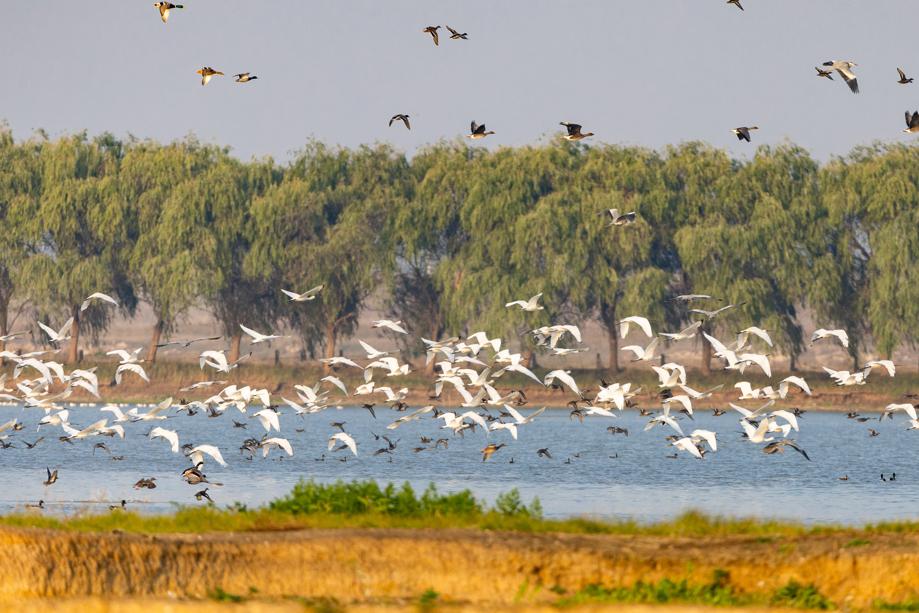Wuhan sees growing number of bird species


More wild bird species have been observed in Wuhan, Hubei province, after bird-watchers and the forestry department protected their habitats and observed their habits, the Wuhan Bird Watching Society said.
Wuhan, a city of more than 10 million residents, is now home to 447 bird species, up from about 160 in 2011, according to the society.
Since 2014, the number of black storks, which are under first-class national protection, has risen. Bird-watchers can see dozens of them overwintering in Wuhan every year. Last year, the local government banned businesses, motor vehicles and camping in the Tianxingzhou Wetland, an island where most of the storks live. The city's environmental bureau has set up a biodiversity survey to better protect birds. The measures also involve the demolition of illegal buildings and the removal of aquaculture activities.
In the past five years, Wuhan has returned 6,333 hectares of fishponds and about 667 hectares of farmland to wetland, according to the city government. Moreover, in the past two years, Wuhan has invested 120 million yuan ($16.4 million) in protecting and restoring the Chenhu Wetland, a nature reserve listed as being of international importance by the Secretariat of the Convention on Wetlands (Ramsar).
By dredging the water system, conserving the original vegetation, building an avian habitat and setting up wetland monitoring points, the water quality in the reserve has improved from lower than Grade V to Grade IV in China's five-tier monitoring system.
Rare and endangered birds such as Baer's pochards, white cranes and oriental white storks have emerged in the lake's wetland, according to the National Forestry and Grassland Administration.
Meanwhile, the Wuhan Bird Watching Society, has been monitoring the number and habitats of each wild bird species. "It's interesting to observe all kinds of birds, listen to 'bird talk' and experience wild fun in the city," said Yan Jun, the head of the society.
Birds are frequent visitors to wetland and a barometer of the environment. Their population size and activity status are closely related to the local environment, Yan said. "Though birds can't speak, they vote with their feet. And we bird-watchers are their sounding board," he said.
Wetland covers 162,000 hectares of Wuhan, accounting for 18.9 percent of the total area.
- Gansu sets up team to probe abnormal blood lead levels in children
- China publishes Han-Tibetan version of major dictionary
- People advised to guard against dengue fever, diarrhea and other diseases
- Exploring China's Xixia Imperial Tombs with Yuanxi
- SCO foreign ministers council meeting to be held in Tianjin
- Foreign officials praise Chinese gardening culture for promoting harmony





































